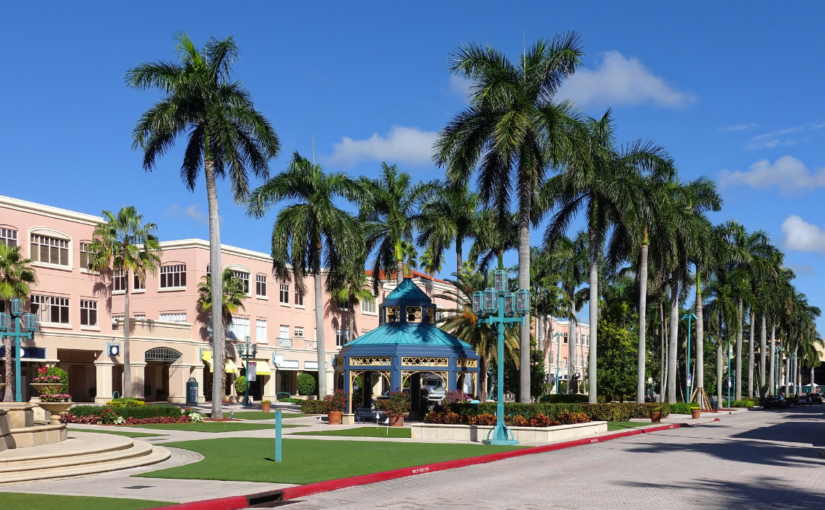back
Understanding the Basics of Retail Property and Shopping Center Loans
02-2023

Due to their consistent income streams, investors favor investing in retail properties and shopping centers. Financing these properties, though, can be difficult, particularly for first-time buyers. We will go over the fundamentals of retail property and shopping center loans in this blog and offer some helpful advice to get you started.
What are shopping centers and retail properties?
Properties used for direct consumer sales of goods and services are known as retail properties. These can include shopping malls, strip malls, and independent stores. A type of retail property known as a shopping center typically has multiple stores and is anchored by one or more major retailers.
Why Invest in Shopping Centers and Retail Properties?
Shopping malls and retail properties are popular investment opportunities for a number of reasons. They start by offering a steady source of income in the form of rent. Contrary to residential properties, retail tenants frequently sign long-term leases of five to ten years, ensuring investors’ steady cash flows. Additionally, high traffic areas are frequently found in retail buildings and shopping centers, which can potentially increase foot traffic and sales. Last but not least, owning a retail property may offer worthwhile tax advantages like depreciation deductions and expense write-offs.
Types of Loans for Retail Real Estate and Shopping Centers
Shopping malls and retail properties are frequently financed with a variety of loans. These consist of:
- Conventional Loans: For seasoned real estate investors, conventional loans, which are provided by conventional banks, are a popular option. High credit scores, a sizable down payment, and a proven track record of rental property ownership are typically requirements for these loans.
- Loans from the Small Business Administration (SBA) are a popular choice for novice investors because they are backed by the US Small Business Administration. Compared to conventional loans, these loans typically have lower down payment requirements and longer repayment terms.
- Loans secured by commercial mortgage-backed securities (CMBS) are a particular category of commercial real estate loan that are packaged and offered to investors. These loans can be a good choice for investors looking for lower interest rates because they are frequently used for large shopping malls and retail properties.
- Private loans are provided by individuals or private businesses and are frequently used by investors who do not meet the requirements for conventional bank loans. Compared to other loan types, these loans typically have higher interest rates and shorter repayment terms.
How to Be Eligible for a Loan for a Shopping Center or Retail Property
It can be difficult to qualify for a retail property or shopping center loan, especially for novice investors. It’s crucial to have a strong financial profile, which includes a high credit score, a sizable down payment, and a proven track record of rental property ownership, to increase your chances of approval. You should also be prepared to submit thorough tax returns, financial statements, and other supporting documentation to back up your loan application.
Advice for Investing in Shopping Centers and Retail Properties
- The most important factor in purchasing a retail building or shopping center is its location. Look for homes that are close to major thoroughfares and have good visibility and accessibility.
- Diversify Your Tenant Mix: A variety of tenants will help to lower the risk of vacancy in your shopping center. To offer a range of goods and services, search for a mix of anchor tenants (large retailers) and smaller tenants.
- Maintain Your Property: To draw and keep tenants, your property needs to be kept in good condition. Regularly check your property for any maintenance problems and take immediate action if you find any.
- Keep an Eye on Market Trends: Since the retail sector is constantly changing, it’s critical to stay informed of new developments. Making wise investment decisions can be aided by staying current with consumer trends, technological developments, and market competition.
Shopping center loans and loans for retail property are both excellent ways to invest in commercial real estate and create a steady stream of income. You can navigate the application process and improve your chances of approval by being aware of the fundamentals of these loans, the various types that are available, and what lenders look for in a borrower. You can build a successful investment portfolio that generates a consistent income for years to come with careful planning and attention to detail.
F2H Capital Group is a debt advisory firm specializing in negotiating the best terms for your commercial real estate projects. The company offers a range of financial products and services, including fixed loans, bridge loans, and construction loans across all asset types. Please contact us for any of your financing needs.

